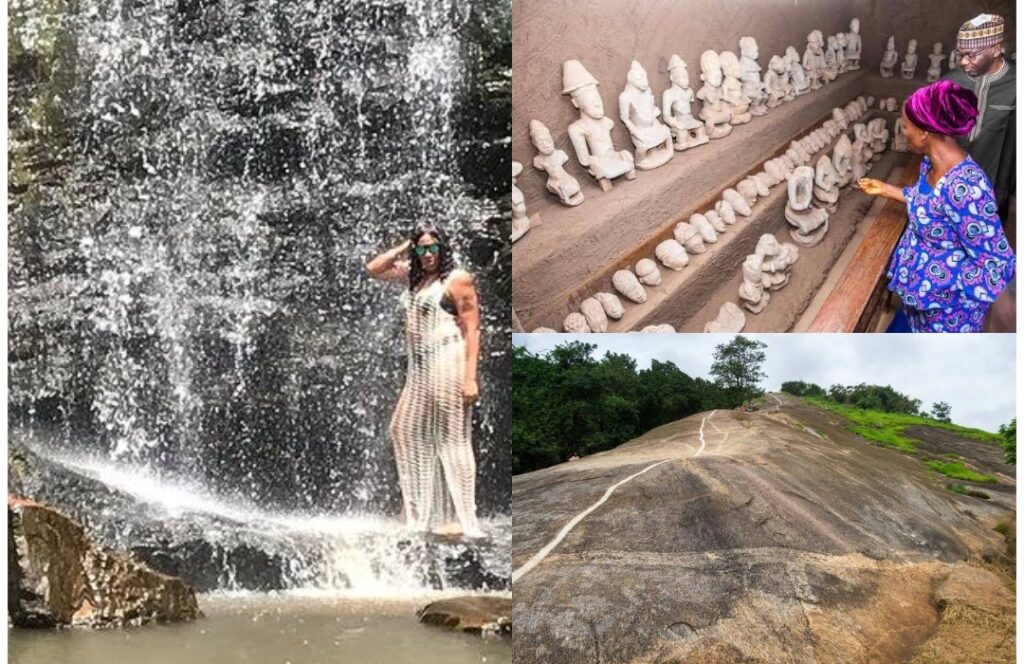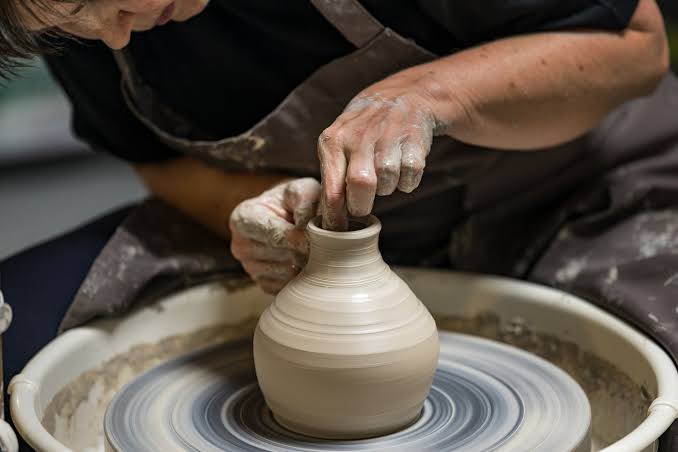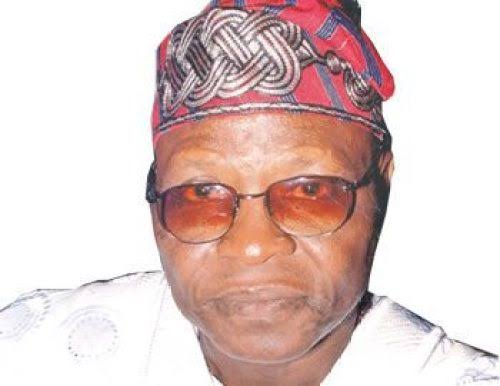Kwara State is a state located in the north-central region of Nigeria, and it is known for its unique culture, tourist attractions, and agricultural resources. The state is home to over 3 million people and has a rich history dating back to its creation in 1967. Kwara State is bordered by Niger State to the north, Kogi State to the east, Ekiti and Osun states to the south, and Oyo State to the west. The state capital is Ilorin, which is also the largest city in the state. In this article, we will explore some interesting facts about Kwara State that you may not know.
Creation Of Kwara State
Kwara State was created on May 27, 1967, during the military regime of General Yakubu Gowon. Prior to its creation, the state was part of the Northern Region of Nigeria. The creation of Kwara State was part of the government’s efforts to restructure the country into smaller states for administrative convenience.

Kwara State Meaning
The name “Kwara” is derived from the River Niger, which forms the northern border of the state. “Kwara” means “river” in the local Yoruba language. The River Niger is an important landmark in the state, as it provides water for agriculture and fishing activities, and serves as a transportation route for goods and people.

Kwara State Capital
The capital of Kwara State is Ilorin. Ilorin is a major city in the state and is located in the central part of the state. It is a cosmopolitan city with a diverse population, and it is known for its rich cultural heritage. Ilorin is also an important commercial center, with a thriving market and a number of industries.
Kwara State Slogan
“The State of Harmony” is the official slogan of Kwara State. The slogan reflects the peaceful coexistence of the various ethnic and religious groups in the state. Kwara State is known for its religious tolerance and peaceful atmosphere, which has contributed to its development and growth.

Kwara State Border
Kwara State shares borders with Niger State to the north, Kogi State to the east, Ekiti and Osun States to the south, and Oyo State to the west. The state’s location makes it an important transit point for goods and people traveling between the northern and southern parts of Nigeria. The state’s borders also provide opportunities for trade and commerce with neighboring states.
Kwara State Geopolitical Region
The North-Central geopolitical zone of Nigeria is made up of six states, including Kwara State. The region is known for its diverse ethnic groups, natural resources, and agricultural activities.
Kwara State Local Government
The 16 Local Government Areas in Kwara State are Asa, Baruten, Edu, Ekiti, Ifelodun, Ilorin East, Ilorin South, Ilorin West, Irepodun, Isin, Kaiama, Moro, Offa, Oke Ero, Oyun, and Pategi. Each LGA is headed by a chairman and has its own administrative structure.
Kwara State Senatorial Districts
The three senatorial districts in Kwara State are Kwara North, Kwara Central, and Kwara South. Each district is represented by a senator in the Nigerian National Assembly.
Kwara State Main Religion
Islam and Christianity are the two main religions practiced in Kwara State. The state has a rich Islamic heritage, with several historic mosques and Islamic institutions. Christianity is also widely practiced, especially in urban areas.
Kwara State Landmass
Kwara State covers a total area of 36,825 square kilometers, making it the 9th largest state in Nigeria by landmass. The state is bordered by Niger State to the north, Kogi State to the east, Ekiti and Osun States to the south, and Oyo State to the west.
Kwara State Population
As of 2016, Kwara State had an estimated population of 3,154,036, making it the 33rd most populous state in Nigeria. The state has a diverse population, with different ethnic groups such as the Yoruba, Fulani, Nupe, and Baruba. The capital city, Ilorin, is the largest city in the state and has a cosmopolitan population.
Tribes/Ethnic Groups in Kwara State
Kwara State is home to several ethnic groups, with the Yoruba being the largest ethnic group. Other major ethnic groups include the Nupe, Bariba, and Fulani. The state has a rich cultural heritage, with different festivals and celebrations showcasing the diversity of its people.

Kwara State Tourism
Kwara State has several tourist attractions that attract visitors from within and outside Nigeria. The Owu Falls in Ifelodun LGA is a popular destination for nature lovers and adventure seekers. The Esie Museum in Irepodun LGA is known for its collection of soapstone images, while the Sobi Hill Forest Reserve in Ilorin West LGA is a great spot for hiking and bird watching.

Kwara State Natural Resources
Kwara State is blessed with several natural resources, including limestone, marble, and kaolin. These minerals are used in various industries, including construction, ceramics, and pharmaceuticals. The state also has fertile soil, which supports agricultural activities such as rice farming and livestock rearing.

First Democratic/Elected Governor of Kwara State
Cornelius Adebayo was the first democratically elected governor of Kwara State. He was elected in 1992 under the platform of the Social Democratic Party (SDP) and served for a year before the military coup of 1993.
Higher Institutions in Kwara State
Kwara State is home to several higher institutions of learning, including the University of Ilorin, which is one of the largest and most prestigious universities in Nigeria. Kwara State University, located in Malete, is a state-owned university that offers undergraduate and postgraduate programs in various fields. The Kwara State Polytechnic, located in Ilorin, offers diploma and certificate courses in engineering, science, and technology. The Federal Polytechnic, Offa, is another higher institution of learning in Kwara State that offers courses in engineering, science, and technology. In total, there are about 12 higher institutions in the state, which makes it a hub for education in Nigeria.
Kwara State: A Brief Overview
- Creation of Kwara State: Kwara State was created on May 27, 1967, during the military regime of General Yakubu Gowon.
- Kwara State Meaning: The name “Kwara” is derived from the River Niger, which forms the northern border of the state. “Kwara” means “river” in the local Yoruba language.
- Kwara State Capital: The capital of Kwara State is Ilorin.
- Kwara State Slogan: “The State of Harmony” is the official slogan of Kwara State.
- Kwara State Border: Kwara State shares borders with Niger State to the north, Kogi State to the east, Ekiti and Osun States to the south, and Oyo State to the west.
- Kwara State Geopolitical Region: Kwara State is located in the North-Central geopolitical zone of Nigeria.
- Kwara State Local Government: Kwara State has 16 Local Government Areas (LGAs).
- Kwara State Senatorial Districts: Kwara State has three senatorial districts: Kwara North, Kwara Central, and Kwara South.
- Kwara State Main Religion: Islam and Christianity are the main religions practiced in Kwara State.
- Kwara State Landmass: Kwara State covers a total area of 36,825 square kilometers, making it the 9th largest state in Nigeria by landmass.
- Kwara State Population: According to the National Population Commission, Kwara State had an estimated population of 3,154,036 as of 2016, making it the 33th most populous state in Nigeria.
- Tribes/Ethnic Groups in Kwara State: The major ethnic groups in Kwara State are Yoruba, Nupe, Bariba, and Fulani.
- Kwara State Tourism: Kwara State is home to several tourist attractions, including the Owu Falls in Ifelodun LGA, Esie Museum in Irepodun LGA, and the Sobi Hill Forest Reserve in Ilorin West LGA.
- Kwara State Natural Resources: Kwara State is rich in mineral resources such as limestone, marble, and kaolin.
- First Democratic/Elected Governor of Kwara State: Cornelius Adebayo was the first democratically elected governor of Kwara State. He served from 1992 to 1993.
- Higher Institutions in Kwara State: Kwara State has several higher institutions of learning, including the University of Ilorin, Kwara State University, Kwara State Polytechnic, and the Federal Polytechnic, Offa, among others. In total, there are about 12 higher institutions in the state.

